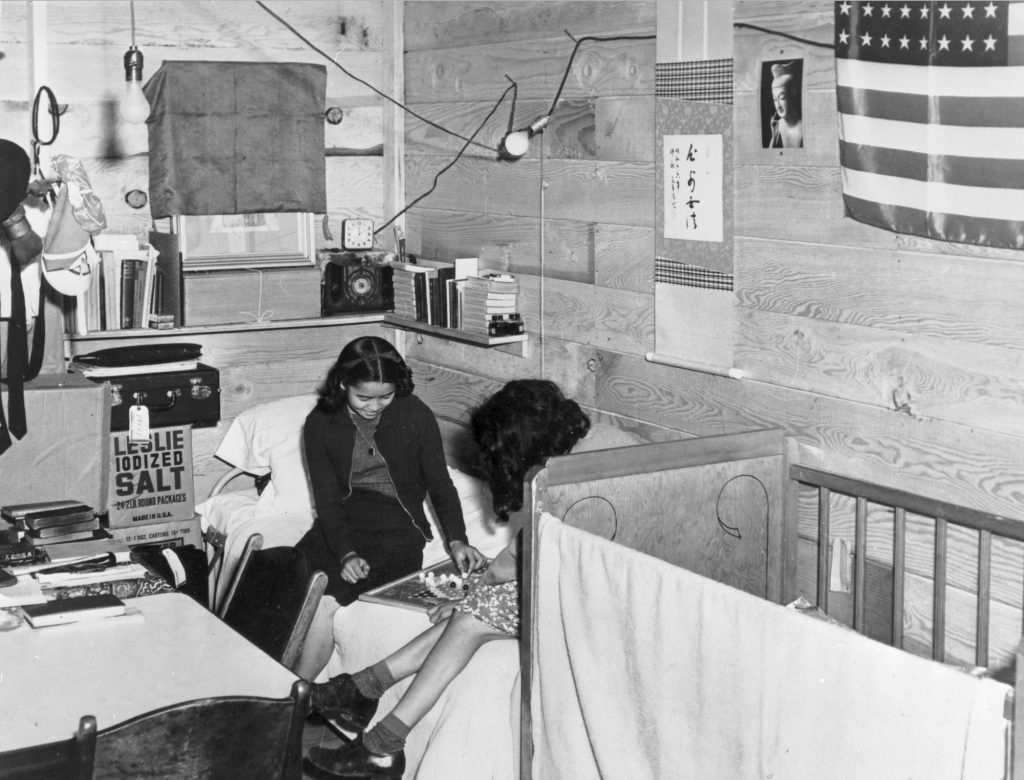“Is America best defined as a fundamentally white and Christian nation, or is it a land of multiple races and ethnicities and a haven for religious freedom?”
That question lies at the heart of Duncan Ryuken Williams’s new book, American Sutra: A Story of Faith and Freedom in the Second World War (for an adapted excerpt, see “Thus Have I Heard: An American Sutra”). For decades this question has seemed all but rhetorical to most of us, yet with recent attempts to stem the flow of Muslim immigration to this country, it’s a question that’s assuming a new urgency.
Williams, professor of religion and East Asian languages and cultures at the University of Southern California, documents the internment of tens of thousands of Japanese Americans in the aftermath of the Imperial Army’s attack on Pearl Harbor in December 1941. The action taken against Japanese Americans was swift: for years they had been under surveillance by a mistrustful US government, which had kept meticulous track of their habits, religious affiliations, and whereabouts, and plans for mass arrests were already in place. By February 1942, President Roosevelt had signed into law Executive Order 9066, allowing the military to place all persons of Japanese descent— or even partial descent—in internment camps.
In stark contrast, the loyalties of Americans of German and Italian descent remained largely unchallenged. Race, it turned out, was not the only factor at play. The American government was particularly suspicious of Buddhists, whose religion they considered alien and a threat to national security; Christians of Japanese descent were treated with more leniency, though they too were interned. But despite the government’s extreme hostility toward Buddhism and the harsh conditions it inflicted on the Japanese Americans in the camps, Buddhist life flourished among the interned. Indeed, the camps served as a kind of crucible out of which a uniquely American Buddhism was born, one that not only strengthened Japanese Americans’ ties to their religion but also—and poignantly—deepened their loyalty to a Constitution that afforded them the freedom to practice it. In the camps, Buddhists of diverse traditions practiced together, modeling a pluralism that has come to characterize American Buddhism.
Since World War II, Japanese Americans have often been the fiercest defenders of religious freedom, most recently in spirited protests against President Trump’s Muslim travel ban. Although the US Supreme Court found that the travel ban fell within the president’s authority, it overturned its 1944 decision affirming the constitutionality of Executive Order 9066. Despite this silver lining, however, the Muslim ban had already cast suspicion on yet another religious minority that Trump’s predecessors had been at great pains to protect.
I spoke with Duncan Williams in our most recent episode of Tricycle Talks. He told me about an elderly Japanese woman who, in the days following 9/11, had planted herself on the steps of a local mosque in Hawaii. Asked by the imam what had brought her there, she answered, “I just want to make sure nothing bad happens.” Williams’s narrative—a warning meticulously researched and compellingly told—invites us to join in her vigilance.
Thank you for subscribing to Tricycle! As a nonprofit, we depend on readers like you to keep Buddhist teachings and practices widely available.
